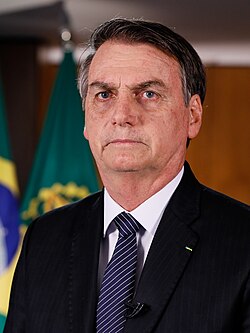
Introduction
The political career of Jair Bolsonaro has significantly reshaped Brazil’s political landscape. As a controversial figure, his policies and rhetoric have sparked debate both domestically and internationally. The importance of understanding Bolsonaro’s governance is crucial, especially as Brazil approaches pivotal elections while grappling with pressing social and economic issues.
Overview of Bolsonaro’s Policies
Jair Bolsonaro, who served as Brazil’s president from January 2019 until December 2022, was known for his far-right ideologies and populist approach. His tenure was marked by aggressive economic reforms aimed at reducing public spending and encouraging foreign investment. However, his administration often faced criticism for its handling of environmental issues, particularly regarding deforestation in the Amazon rainforest, and the controversial response to the COVID-19 pandemic.
Key Events During His Presidency
Bolsonaro’s presidency witnessed significant events that shaped his public perception. One of his notable actions was the rapid implementation of pension reforms aimed at stabilising Brazil’s economy. However, these reforms also faced backlash from various sectors, including labour unions, which feared increased poverty among the elderly. Additionally, his approach to indigenous rights and environmental protections sparked global outrage, leading to a deterioration in Brazil’s relations with several countries.
A major turning point occurred during the COVID-19 pandemic, where Bolsonaro’s dismissal of the virus’s severity led to widespread criticism as Brazil became one of the countries hardest hit by the virus. Data revealed that Brazil had one of the highest death tolls globally, which many attributed to Bolsonaro’s scepticism towards lockdown measures and vaccines.
Post-Presidency and Future Outlook
<pAfter losing the presidential election in 2022 to Luiz Inácio Lula da Silva, Bolsonaro's future in Brazilian politics remains uncertain. His loyal support base, however, continues to rally around him, with ongoing debates regarding the direction of the country under the new leadership. Analysts suggest that Bolsonaro's influence could persist, particularly if he chooses to run again in 2026 or remains active in legislative politics.
Conclusion
Bolsonaro’s presidency left a lasting mark on Brazil’s political scene, with implications that will resonate for years to come. As Brazil moves forward, the impact of his policies, as well as the profound divisions in society that they exacerbated, will be critical for readers to follow. The upcoming years may witness a struggle between Bolsonaro’s populist legacy and the efforts of the new administration to unify a divided nation.
You may also like

The Evolving Role of the Manager in Modern Business

Understanding the Current Political Landscape in the UK
